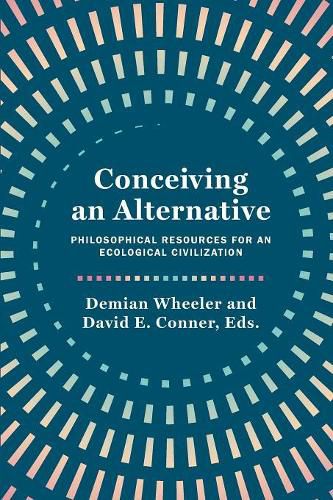Readings Newsletter
Become a Readings Member to make your shopping experience even easier.
Sign in or sign up for free!
You’re not far away from qualifying for FREE standard shipping within Australia
You’ve qualified for FREE standard shipping within Australia
The cart is loading…






This title is printed to order. This book may have been self-published. If so, we cannot guarantee the quality of the content. In the main most books will have gone through the editing process however some may not. We therefore suggest that you be aware of this before ordering this book. If in doubt check either the author or publisher’s details as we are unable to accept any returns unless they are faulty. Please contact us if you have any questions.
The essays in this volume are not limited to any single theme or subject. Some of the chapters are focused on the impact of various philosophical perspectives on environmentalism. Others roam into issues of Western philosophy stretching all the way from Plato and Aristotle to Bergson and Whitehead. Notwithstanding this diversity of topics, all of the authors attempt in varying ways to draw conclusions that are relevant to a renewed commitment to the health of planet Earth.
It is the underlying contention of these authors that philosophy can help us respond imaginatively, constructively, and creatively to the ecological issues of our age. How? For one thing, our deep-seated and often unnoticed presuppositions about the nature of reality have direct bearing on our attitudes and actions, and philosophy can help us bring those presuppositions to light and think critically about them. What is more, philosophy can help us formulate and defend more adequate, plausible, and beneficial outlooks on the natural world and the place of human beings within the community of all earthly creatures.
The shared goal of all the chapters is to find new philosophical and theological inspiration as we human creatures seek to respond imaginatively, constructively, and creatively to the ecological issues of our age, recognizing that we desperately need to conceive an alternative to the pervasive worldviews that have led our civilization to the brink of catastrophe.
$9.00 standard shipping within Australia
FREE standard shipping within Australia for orders over $100.00
Express & International shipping calculated at checkout
This title is printed to order. This book may have been self-published. If so, we cannot guarantee the quality of the content. In the main most books will have gone through the editing process however some may not. We therefore suggest that you be aware of this before ordering this book. If in doubt check either the author or publisher’s details as we are unable to accept any returns unless they are faulty. Please contact us if you have any questions.
The essays in this volume are not limited to any single theme or subject. Some of the chapters are focused on the impact of various philosophical perspectives on environmentalism. Others roam into issues of Western philosophy stretching all the way from Plato and Aristotle to Bergson and Whitehead. Notwithstanding this diversity of topics, all of the authors attempt in varying ways to draw conclusions that are relevant to a renewed commitment to the health of planet Earth.
It is the underlying contention of these authors that philosophy can help us respond imaginatively, constructively, and creatively to the ecological issues of our age. How? For one thing, our deep-seated and often unnoticed presuppositions about the nature of reality have direct bearing on our attitudes and actions, and philosophy can help us bring those presuppositions to light and think critically about them. What is more, philosophy can help us formulate and defend more adequate, plausible, and beneficial outlooks on the natural world and the place of human beings within the community of all earthly creatures.
The shared goal of all the chapters is to find new philosophical and theological inspiration as we human creatures seek to respond imaginatively, constructively, and creatively to the ecological issues of our age, recognizing that we desperately need to conceive an alternative to the pervasive worldviews that have led our civilization to the brink of catastrophe.